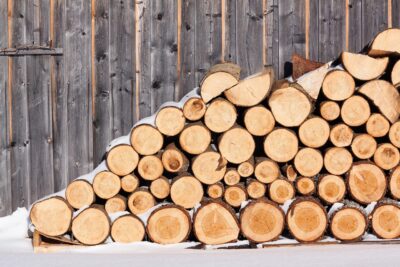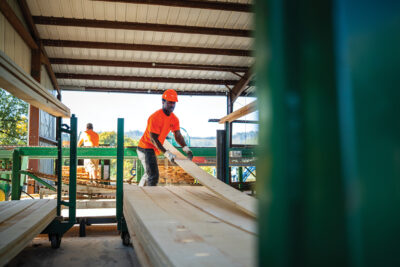The U.S. Department of Commerce in Washington, DC recently confirmed once again that Canadian Softwood lumber is heavily subsidized and dumped into the U.S. market by issuing a combined anti-subsidy and anti-dumping duty “administrative review” rate of 8.81 percent.
“While the U.S. Lumber Coalition has demonstrated that this calculation understates true levels of subsidies and dumping, these results nonetheless reinforce that the Canadian lumber industry benefits from significant government subsidies and dumps lumber into the U.S. market at unfairly low prices,” stated Zoltan van Heyningen, Executive Director of the U.S. Lumber Coalition.
The duty deposit rates and duties assessed on Canadian lumber imports will rise and fall between administrative reviews based upon numerous legal and factual considerations during a review period, market prices and volume of imports among them. The Commerce Department initiated the second administrative review in March 2020, covering Canadian lumber imports in 2019. A preliminary determination for the second administrative review is expected in late January 2021.
“Unfortunately, it appears that a World Trade Organization (WTO) dispute settlement panel report from an earlier and separate phase of the case, which is currently under appeal, had a negative impact on the countervailing duty rate for the first administrative review,” said van Heyningen.
“It is absolutely imperative that these flawed WTO recommendations are not allowed to undermine in any way the continued enforcement of the trade laws,” emphasized van Heyningen. “The WTO case is far from over, and as such, it must not be allowed to influence the ongoing process and the results of the second administrative review.”
“The U.S. lumber industry will continue to push for the trade laws to be enforced to the fullest extent possible in the second administrative review to allow U.S. manufacturers and workers the chance to prosper,” said Jason Brochu, U.S. Lumber Coalition Co-Chair and Co-President of Pleasant River Lumber Company.
Since 2016, the U.S. industry has added 7.6 billion board feet of new production to supply the U.S. market. This means that more U.S. wood produced by U.S. workers for U.S. housing to support U.S. communities.
“Full and effective enforcement of the U.S. trade laws against unfairly traded Canadian lumber imports is absolutely critical for the continued growth of the U.S. industry and the 750,000 men and women who depend on it,” concluded Brochu.
The U.S. Lumber Coalition is an alliance of large and small Softwood lumber producers from around the country, joined by their employees, and woodland owners, working to address Canada’s unfair lumber trade practices. Our goal is to serve as the voice of the American lumber community, and effectively address Canada’s unfair Softwood lumber trade practices, including its gross underpricing of timber.
For more information, please visit the Coalition’s website at www.uslumbercoalition.org.









